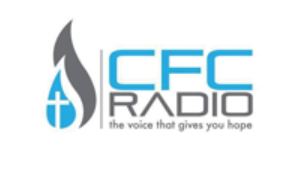Calvary Family Church Radio is at risk of being closed as the Lazarus Chakwera administration through Malawi Communications Regulatory Authority (MACRA) continues its crackdown on radio and television stations.
MACRA Director General, Daud Suleman says Calvary Family Church Radio is yet to settle its annual content license fees amounting to K11.5 million. The radio station was given six months to settle the outstanding balance and now it has until 21 November 2022 to pay, or its license will be revoked.
Six radio stations which were given a deadline of November 13 to pay the outstanding fees have managed to pay.
The six are Radio Alinafe (K10 million), Radio Maria (K15 million), Pentecostal Life FM (K8.3 million), Radio Tigabane (K13 million), Living Waters Radio (K15 million) and Blantyre Synod Radio (K7 million).
This year MACRA has revoked licenses for Capital Radio, Sapitwa FM, Joy Radio, Ufulu FM and Galaxy FM among others, for failure to pay their license fees.
Some media houses including MIJ FM, Angaliba Radio and TV, Ndirande FM, Voice of Livingstonia and Chisomo FM whose licenses were on the verge of being revoked were spared after managing to pay their outstanding fees.
Up to 30 other broadcast outlets are expected to close by the end of this year, amid the revocation of their licenses for inability to pay their annual license fees. Nearly 250 employees from three six radio stations and three TV outlets have already lost their jobs.
In August, Media Institute of Southern Africa (MISA) condemned the closure of the media houses saying broadcasters had already raised concerns that annual fees to MACRA are pegged in US dollars and are exorbitant.
MISA noted that business has generally not been smooth in the last few years due to the Covid-19 pandemic and the general poor performance of the economy.
The media body said the revocation of the licenses under the Chakwera administration is washing away the media and democratic gains of the past 29 years.
“The issues that are leading to the revocation of licenses are not new. Past administrations did not close down stations for delaying to pay license fees. We believe the decision not to close down stations was due to respect for fundamental rights including media freedom, access to information and economic rights of hundreds of Malawians employed by the affected media outlets,” MISA said in its statement.
However, MACRA Director General, Daud Suleman has always insisted that the regulatory body is only following the law.
Jimmy Kainja, a media scholar and lecturer at the University of Malawi, said that while the regulatory body appears to be simply enforcing the law as written, he questions why it has taken so long to decide to close the stations.
MACRA has denied any political interference in its decision. In a statement released in early September, the regulatory body said that it will consider a fresh license application from Capital FM Radio, one of the stations that had its license revoked. The radio station has since been granted a fresh license. MACRA further applauded the radio station’s “professional approach” in “addressing its license obligations and imploring others to the same.”
In a letter predating the parliamentary meeting addressed to Malawian President Lazarus Chakwera, MISA advised that closing broadcasters would risk denting the progress that Malawi has made in press freedom since reintroducing multiparty democracy in 1993.
“We do understand that license fees are part of the regulations, but instead of shutting down the stations, there is a need to engage the broadcasters and come up with a win-win situation. The revocation of licenses is too drastic and has a chilling effect on freedom of expression,” said Golden Maunganidze, MISA’s chairperson.
Another 500 media employees will lose their jobs at the end of this year if the Malawi Communication Regulatory Authority shuts down yet another 17 radio outlets and three TV stations that have delayed in paying fees. These shutdowns are occurring at a time when press freedom in Malawi – despite recent positive developments, such as the implementation of a new Access to Information Law – remains shaky.

